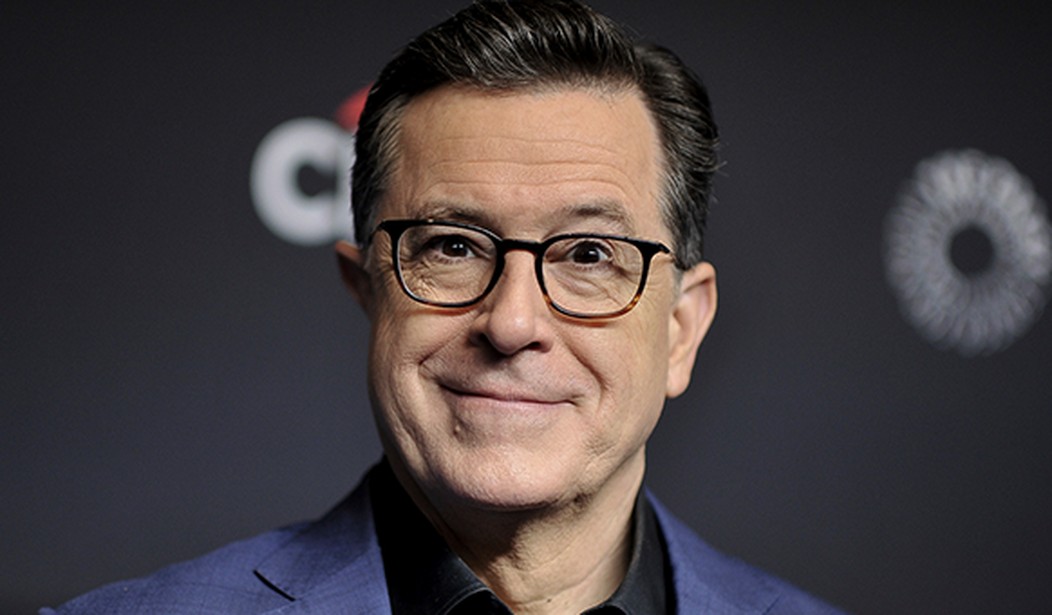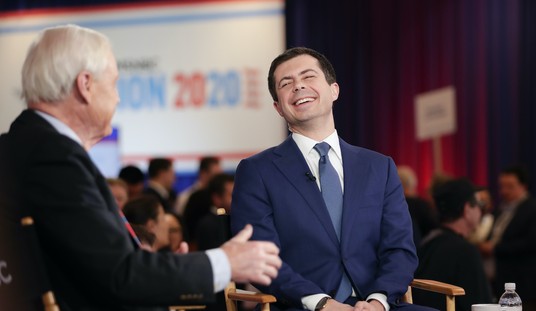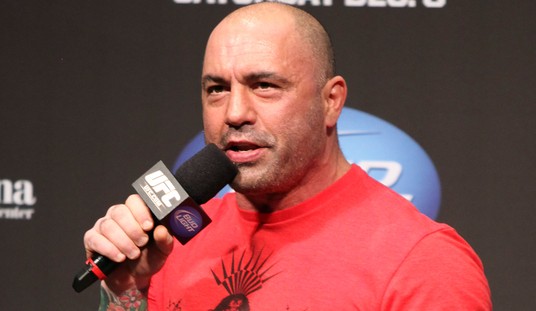Stephen Colbert wants you to know how victimized he felt by then President Donald Trump, in a puff feature piece from Cynthia Littleton published Wednesday with Variety. "How Stephen Colbert Survived the Pandemic, Trump and the Loss of Laughter," proclaims in a title which fails to acknowledge all of the material the then and now former president has given late-night hosts.
The excerpt gaining all the attention is the melodramatic way of how Colbert felt personally targeted. Emphasis is mine:
In Colbert’s view, “Late Show” was not a voice of the resistance to Trump but simply a voice of reason. He was disturbed by what he saw as the former president’s gaslighting of the public in order to pursue a stealth agenda.
“The firehose of misinformation or disinformation and the attempts to make all of us feel crazy by thinking that this was crazy gave us a very interesting place to stand,” Colbert says. “We finally came to the realization that we knew exactly where we wanted to stand — on dry land. Because the rising tide of the administration’s mendacity made it very clear that the only thing left for us to do was to say, ‘No, no, no. That’s not true. No, we’re not crazy. They’re crazy for saying that.’”
Colbert takes a few long pauses while talking about Trump, and it’s the only time his face hardens into a grimace.
“Like everybody else in America we were being so swamped by all the strangeness and the weirdness — it’s almost like a spell was being cast over people,” Colbert reflects. “It felt personally offensive and personally assaultive to me. It was a common feeling in the [‘Late Show’] building, and we trusted that it was a common feeling out there in the world. And we backed the right horse.”
Colbert emphasizes that his roots in improv ground his work in trying to find his honest emotional reaction to any situation. During the most outrageous moments of the Trump administration and through the pandemic, Colbert found that the key to connecting was to reveal his true emotional state.
Recommended
Another absurd excerpt has to do with "a bitterly divided nation," though predictably, the focus tends to be on one side of that division:
One of the notable aspects of Colbert’s strength in late night is that it comes as the nation is bitterly divided along partisan and cultural lines. The host has only started to understand what it meant to have his own late-night pulpit at the time.
“They played a very complex game of psychology on the American people that damn near worked,” Colbert says. “Every so often it would come up in the writers’ room. We would need to metaphorically pull the car over and everybody get out to go throw up in a ditch and get our breath back and realize how insane today was. Because you’d become inured to it. And part of the job was to not develop a callus? That was a big part of it.”
Here's the biggest BS factor, arguably more so than the lamentations of how Colbert felt how the Trump presidency was "personally offensive and personally assaultive" to him:
In Colbert’s view, “Late Show” was not a voice of the resistance to Trump but simply a voice of reason. He was disturbed by what he saw as the former president’s gaslighting of the public in order to pursue a stealth agenda.
If anyone could be considered "a voice of the resistance to Trump," it's arguably Colbert, especially with the platform he has via "Late Show," its over 982,000 Twitter followers, and Colbert's 19.2 million for his personal account.
A good chunk of the piece is devoted to glowing remarks about Colbert, his lamentations about Trump, or a mix of both.
Earlier on Littleton mentions:
“Late Show” was recognized with a Peabody win last month — “for combining comedy with genuine goodness at one of our darkest hours,” as jurors explained — and this month it picked up five Emmy Award nominations, including a bid for variety talk series. The Showtime special “Stephen Colbert’s Election Night 2020: Democracy’s Last Stand” is up for variety live special, and two more awards. And Colbert picked up another nomination as an executive producer of Paramount Plus’ “Tooning Out the News.”
Even though Colbert claims "it changes" when it comes to his plans, he does say "I'm having a really good time." Between the Emmy nominations, this puff piece feature, and the show's ratings, Colbert is likely to be just fine.

























Join the conversation as a VIP Member